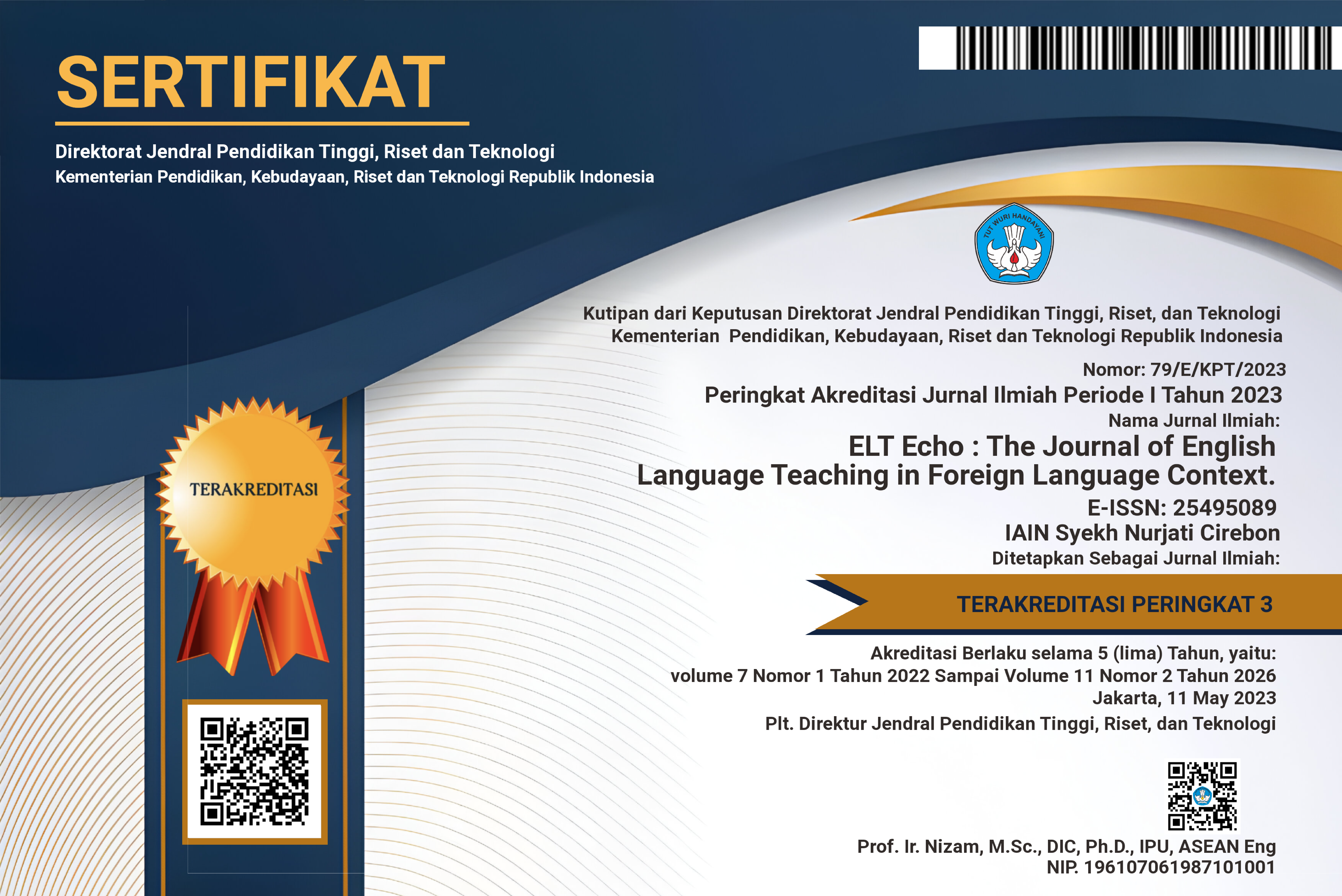SOCIAL CONTEXTS AND CONVERSATIONAL IMPLICATURES IN CONVERSATIONS AMONG FAMILY MEMBERS
(1) Universitas Negeri Semarang
(*) Corresponding Author
Abstract
Keywords
Full Text:
PDFReferences
Cruse, D. A. (2000). Meaning in Language. New York: Oxford.
Cutting, J. (2002). Pragmatics and Discourse: A Resource Book for Students. London: Routledge.
Fang, G. Xin, L. (2017). An Analysis of Conversational Implicature in Nirvana in Fire from the Perspective of Cooperative Principle. Journal of Arts & Humanities, 06 (07): 39-47.
Fraenkel, J. R. and Wallen, N. E. and Hyun, H. H. (2012). How to Design and Evaluate Research in Education. New York: McGraw-Hill.
Holmes, J. (2013). An Introduction to Sociolinguistics. Routledge: New York.
Holmes, J. & Stubbe, M. (2003). Power and Politeness in the Workplace: A Sociolinguistic Analysis of Talk at Work. Routledge: New York.
Jingjie. D. (2016). A Study on the Conversational Implicature in Sons and Lovers From the Perspective of Cooperative Principle. Studies in Literature and Language, 12 (05): 85-90.
Leech, G.N. (1983). Principles of Pragmatics. Essex: Longman.
Levinson, S.C. & Brown. (1987). Politeness: Some Universals in Language Use. New York: CUP.
Levinson, S.C. (1983). Pragmatics. Cambridge: CUP.
Mackey A. and Gass, S. M. (2005). Second Language Research Methodologyand Design. New Jersey: Lawrence Erlbaum Associates, Inc., Publishers.
Mey, J. L. (1993). Pragmatics. Oxford: OUP.
Michael, A. S. Muthusamy, C. (2015). Conversational Implicature and Cooperativeness in D.H Lawrence’s Sons and Lovers. Journal of Creative Practices in Language Learning and Teaching, 03 (02): 46-61.
Nanda, S. Sukyadi, D. Sudarsono, S. (2012). Conversational Implicature of the Presenters in Take Me Out Indonesia. Indonesian Journal of Applied Linguistics, 01 (02): 120-138.
Paltridge, B. (2000). Making Sense of Discourse Analysis. Gerd Stabler: Queensland.
Thomas, J. (1995). Meaning in Interaction. Harlow: Longman.
Wardhaugh, R. (2010). An Introduction to Sociolinguistics. Blackwell Publishers: United Kingdom.
Widiana, Y. (2014). A Pragmatics Study on Jokes and the Implicature in Broadcast Messages. International Journal of Humanities and Social Sciences, 08 (09): 3145-3148.
Yule, G. (2003). Pragmatics. Oxford: OUP
DOI: 10.24235/eltecho.v3i2.3244
Article Metrics
Abstract view : 305 timesPDF - 115 times
Refbacks
- There are currently no refbacks.
Â
This Journal is indexed by:
Â

This work is licensed under a Creative Commons Attribution 4.0 International License.










